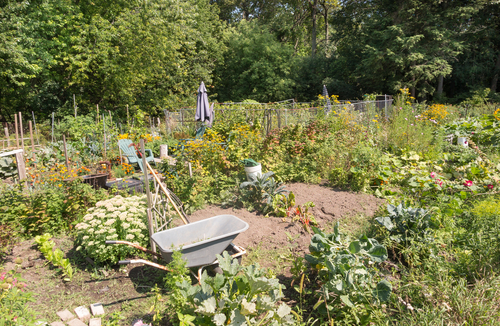Can you cut 1 Tonne of carbon pollution out of your life?
Take the challengeWhen I think of Seoul, I tend to envision a heavily industrialised super city, with about a bazillion people all running frantically between skyscrapers and dodging heavy traffic, under a thick layer of smog. Sure, I’ve never been there, but ‘forward thinking green city’ certainly doesn’t come to mind.
However, it seems that it's very status as an Asian megacity, characterised by high levels of consumption and pollution, is forcing Seoul to consider alternate methods to combat the issues that have arisen from 50 years of rapid industrialisation and growth. And their answer is as simple as sharing.
As far as cities go, Seoul has some pretty major social, economic, and environmental problems to face. Insanely rapid growth post the Korean War has led to over population, high youth unemployment, traffic congestion and pollution, unimaginable amounts of waste due to overconsumption, and a decline in the sense of community from urbanisation. All of this has resulted in a major stress on resources, unhappy citizens and an unhealthily polluted environment. Sounds like an eco-nightmare, am I right!?
Well, the Seoul city government, in collaboration with NGOs and Creative Commons Korea, has decided to restructure the way things operate in the South Korean capital, and in 2012, released a manifesto outlining their plans to turn Seoul into a 'Sharing City'.
What does a sharing city look like, I hear you ask? According to the manifesto, the entire concept is "based on a mutual kindness", and centres on the idea that people can share goods, services, spaces, ideas, and energy in order to "recover a sense of trust and community, reduce waste and over-consumption, and activate the local economy."
Shared libraries, share gardens, shared kitchens, share cars, common tool warehouses, shared work and creative spaces, children's clothing exchange, used goods exchange, money-free bartering systems and community action projects are just some of the initiatives that have been born out of this official sharing ecosystem over the past four years.
This collaborative consumption system adopted by Seoul has been widely successful, aided particularly by the online network Sharehub.kr, which contains a directory of all the sharing services and projects happening around the city for citizens to use and participate in. The sharing city movement has only been made possible due to the internet, and the Seoul government capitalised on this when establishing 1,992 new wireless access points in markets, parks and government offices since they launched the manifesto.
Prior to the Sharing City initiative, Seoul citizens were producing nearly 9,000 tons of rubbish every day. Now, citizens are coming up with innovative ways to share their resources fairly and efficiently, with the overall goal of reducing waste and making their city a more inviting, innovative and inhabitable place to be.
We've seen the collaborative consumption concept become a more and more prevalent idea in the past few years, with the introduction of ride-sharing, airbnb and Snapgoods, but we can certainly take a leaf out of Seoul's book (as I'm sure they wouldn't mind sharing it with us….), and start to adopt more sharing in our own lives!
Read this next: How to join the sharing economy
Simple ways to start 'Sharing':
- Find and utilise your community gardens, or share produce from your own gardens with your neighbours and friends
- Visit libraries more often instead of buying new books every time, or pass on books you've purchased to your friends. Same goes or CDs, magazines, DVDs, video games, anything really!
- Car pool to work.
- If your car sits idle for huge chunks of the week, consider registering it on a car share site like carnextdoor or drivemycar. You might be able to save someone from buying their own car (and save the consequential green house gas emissions and resource usage that would go with it), plus make some extra cash on the side!
- Put things on ebay or gumtree when they are no longer of use to you, or do a full on swap with one item or another on sites like swaptrees.com
Read this next: Start here: Use a library card to kick-start your climate action journey
Read this next: This neighbourhood in South Korea went without cars for a month, and the results are incredible!
1 Million Women is more than our name, it's our goal! We're building a movement of strong, inspirational women acting on climate change by leading low-carbon lives. To make sure that our message has an impact, we need more women adding their voice. We need to be louder. Joining us online means your voice and actions can be counted. We need you. We're building a movement of women fighting climate change through the way we live.

